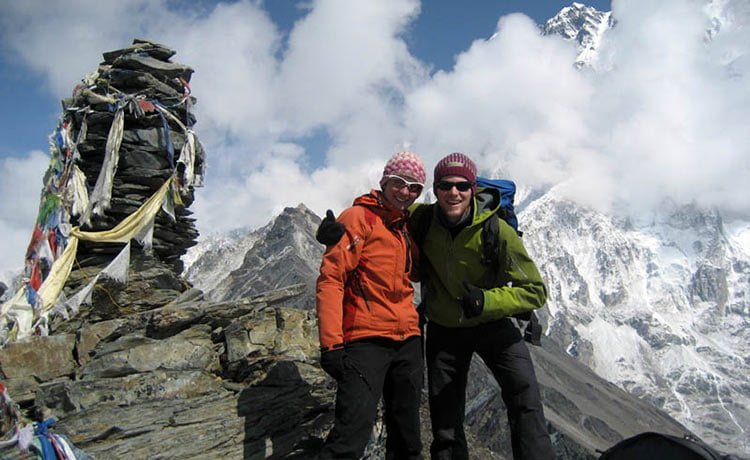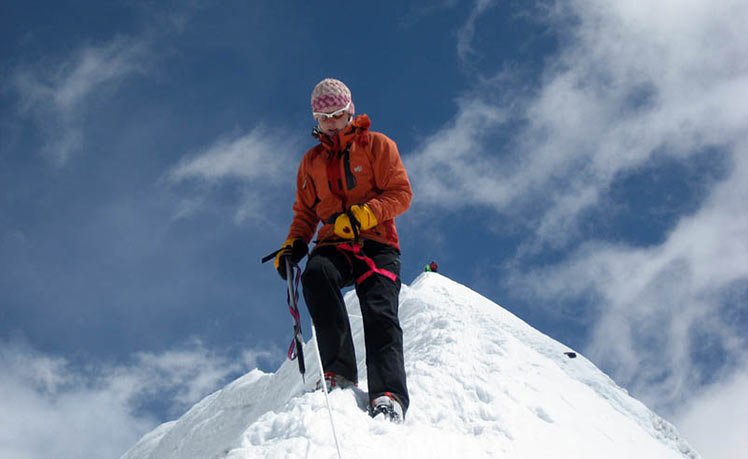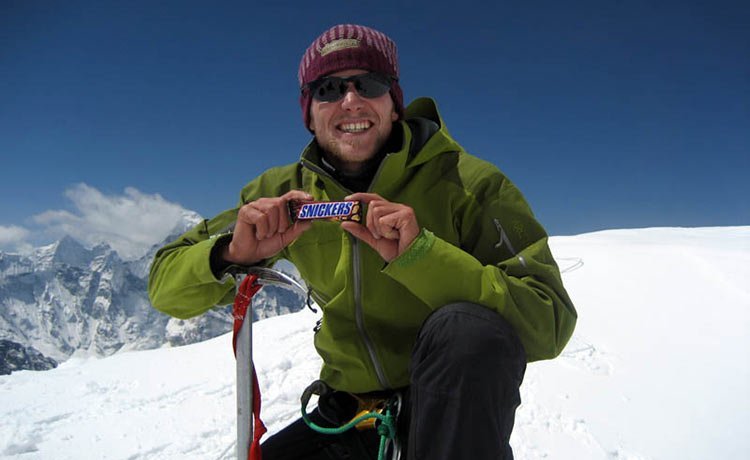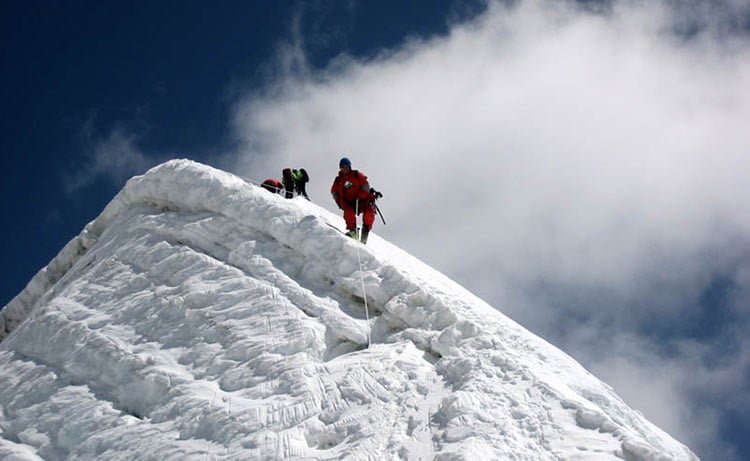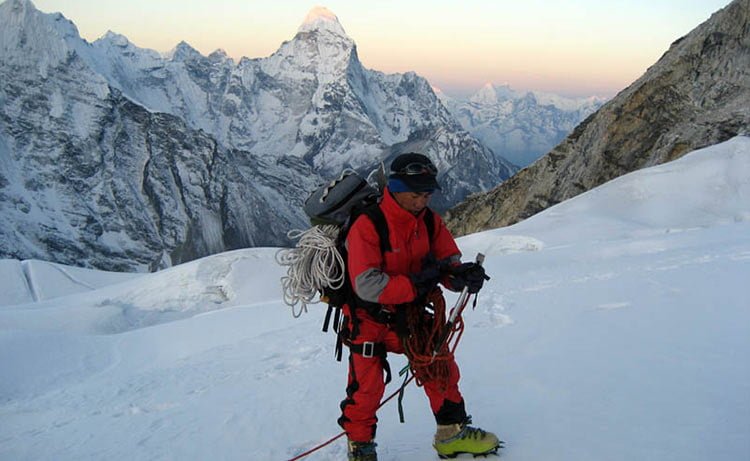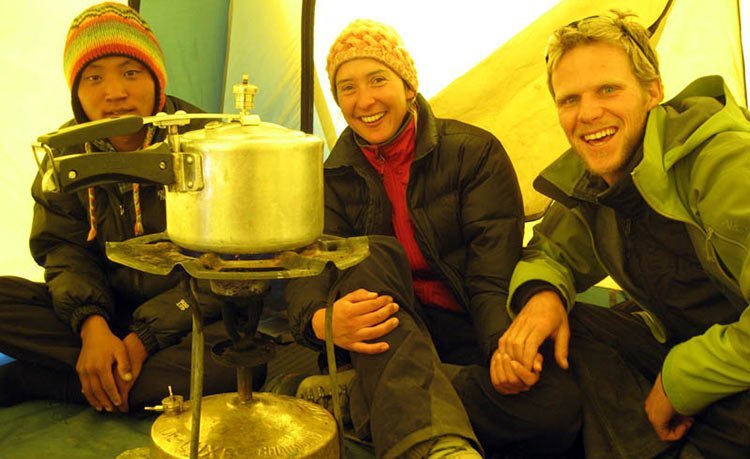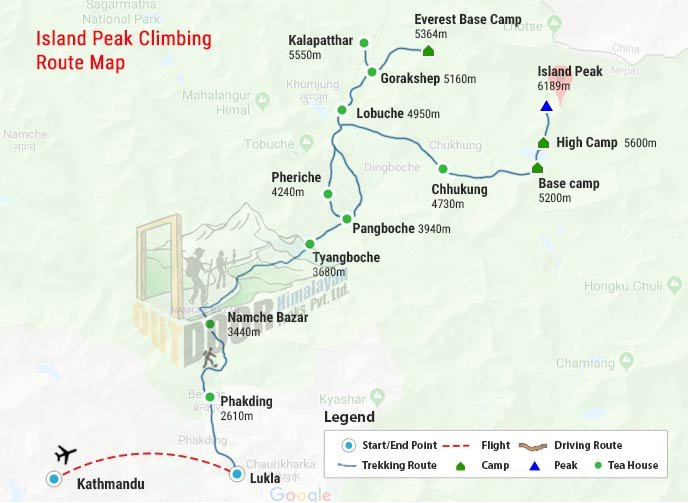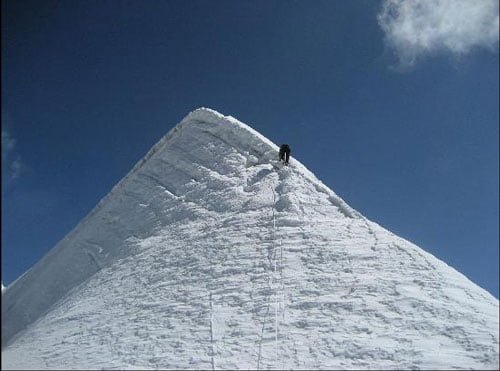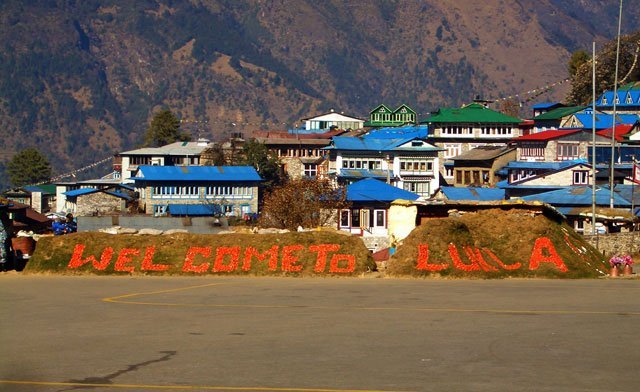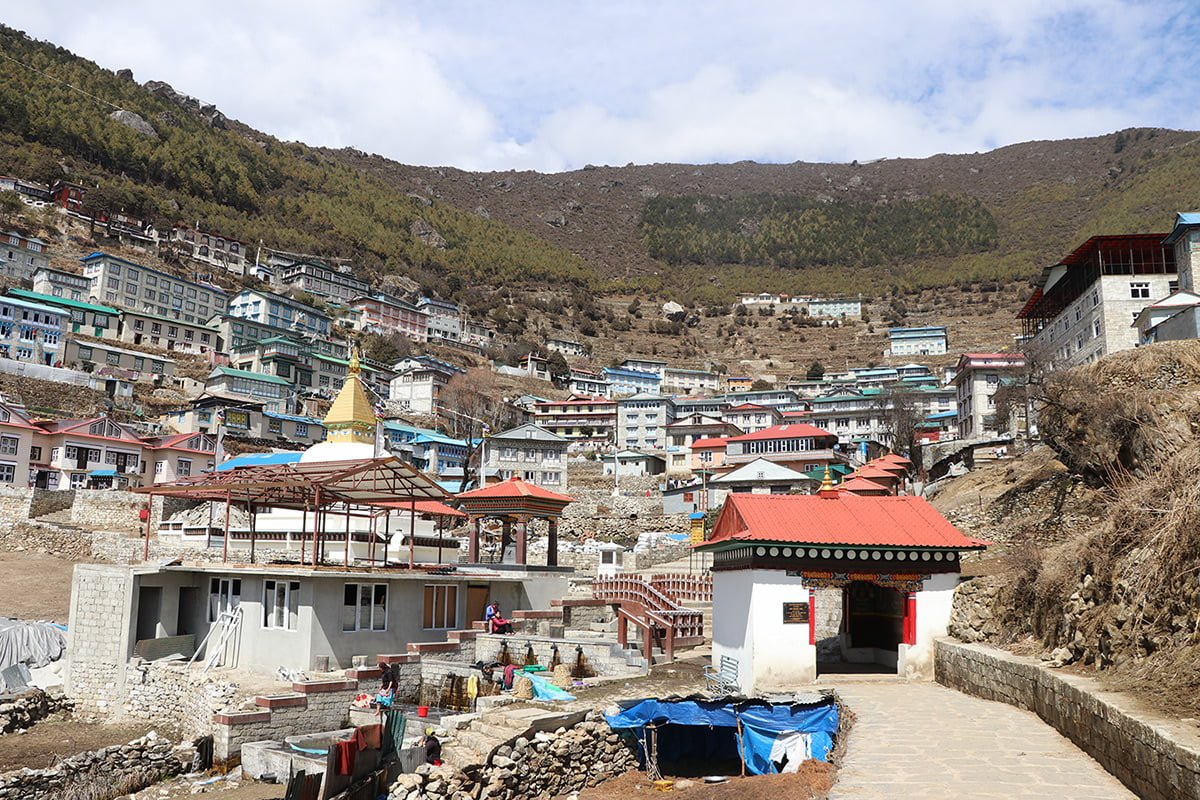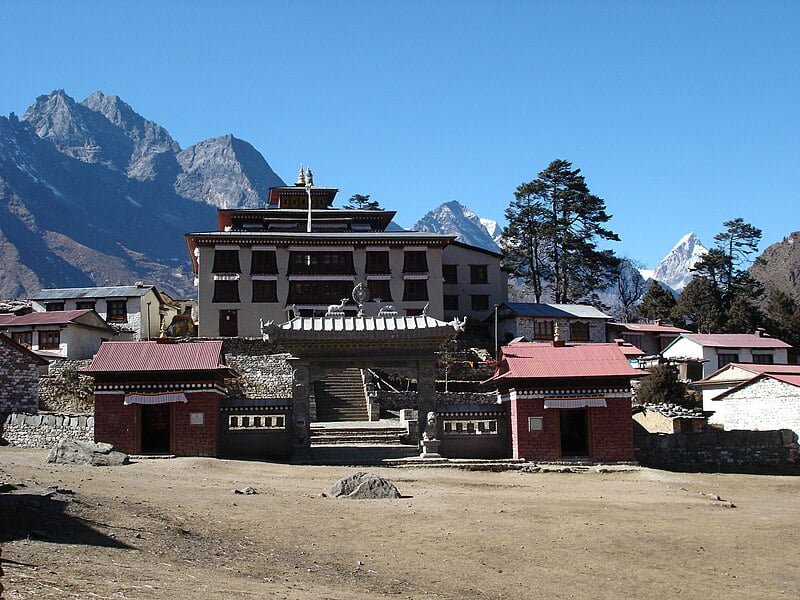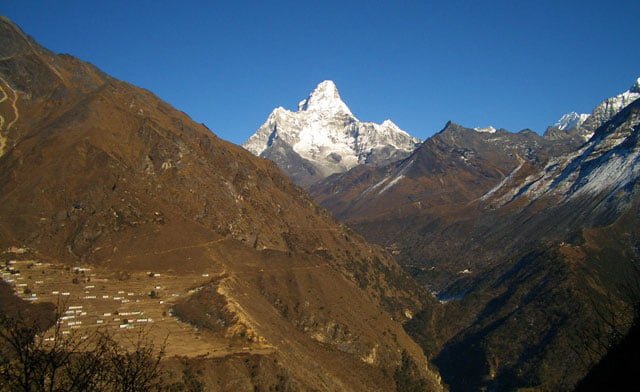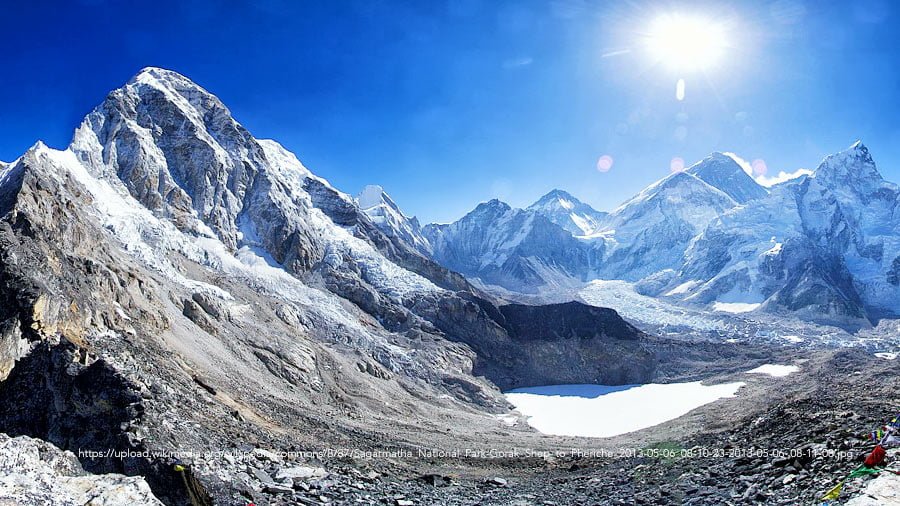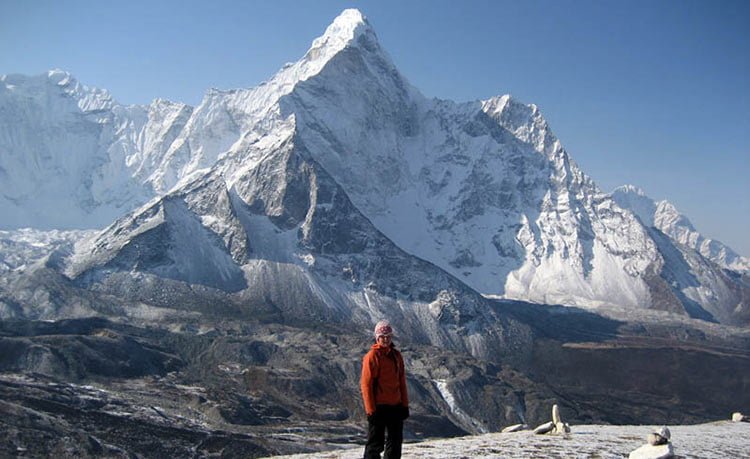Island Peak climbing is one of the most popular peak-climbing summits in Nepal. Standing 6165 m tall, island peak climbing is good practice for anyone who wishes to reach the above 8000 m wonders. Imja Tse is the local name for Island Peak. Taking the route from Lukla – Namche – Tengboche – Dingboche – Base camp, Island peak climbing is one of the most adventurous and fun-filled trekking destinations of Nepal.
Is this Island Peak Climbing for me?
Physical Grading: Strenuous
A strenuous trek that demands trekkers/travelers to have a top-notch level of physical and mental fitness to trek daily for long hours at high altitudes.
Max Elevation: 6,165 m (Island Peak)
The highest point of the trek is a perfect vantage point to get close-up views of Lhotse, Makalu, Baruntse, Ama Dablam, Nuptse, Lhotse Shar, etc.
Accommodation: Hotel, Teahouse, Camping
Comfortable accommodation with basic facilities during peak climbing, a tented camp during peak climbing, and a standard hotel in a city.
Meals: Full Board
Healthy and Hygienic 3-course meals during the peak climbing, and only breakfast in a city.
Best Season: Autumn & Spring
Stable weather and temperature offer clear views and comfortable trekking trails.
Trip Route:
Lukla – Phakding – Namche Bazaar – Tengboche – Dingboche – Lobuche – Gorakshep -Everest Base Camp – Gorakshep – Kalapatthar – Chukhung – Island Peak Base Camp – High Camp – Island Peak Summit – Pangboche - Namche - Lukla
Island Peak Climbing Overview
Island Peak climbing in the Everest region at an elevation of 6,165 m is among the very famous mountaineering expeditions in Nepal. Nepal has numerous other mountains in the Himalayan region that draw a large number of climbers every year. Because climbing them is equally demanding, and equally adventurous. Just like the legendary 8-thousand, these lesser mountains give a good test to the skills and acumen of the Mountaineers. Island Peak is one of them, and this peak climb is also done for the practice of mountaineering skills and acclimatization as a prelude to the Everest expedition. The local name for the Island Peak is Imja Tse.
Our itinerary for Island Peak climbing does not just take you to the top of this mountain from where you will enjoy a heavenly panorama of Himalayan peaks and other sceneries. It also helps you collect the intimate experience of the Sherpas, their culture, and their lifestyle. Khumbu region is also familiar as the Everest region. It is the original settlement of Sherpas in Nepal. They have now earned a worldwide reputation as the most hospitable people and the most reliable climbing guides. Our 20-day itinerary comes with the combined riches of climbing and trekking. And you also get to know about the Everest Sherpa lifestyle.
We will start with a short flight through an aerial mountain route to Lukla. Once we reach the Island Peak Base Camp, it is possible to stand atop the summit in about 2 days. Depending on weather conditions and other factors, your guide will choose the best alternative for you.
Island Peak Climbing Highlights
- Popular trekking peak at an elevation of 6,165 m
- Incredible views of Lhotse, Makalu, Baruntse, Ama Dablam, Nuptse, Lhotse Shar, etc.
- Traversing through the amazing Sagarmatha National Park
- Varied flora and fauna in the national park’s surroundings
- Picturesque vistas of diverse landscapes, snow-capped mountains, local villages
- Sherpa people and their culture, tradition, and lifestyle


